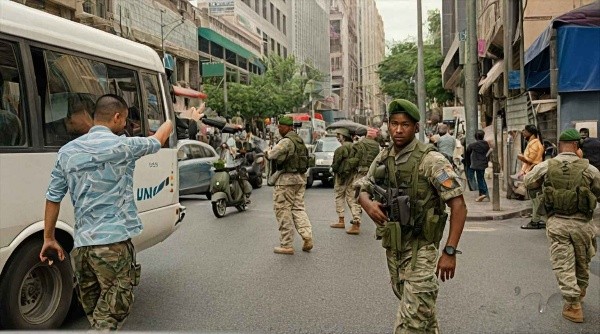Iran’s Plan to Strike Back Against the U.S.
Iran’s Military Preparations Following U.S. Attacks
Loading...

Thousands of members of the Lebanese resistance movement Hezbollah as well as civilians have been killed or wounded after wireless communication devices, known as pagers, exploded in different locations across the country on Tuesday.
Overview of the Incident
On Tuesday, September 17, 2024, a series of devastating explosions involving wireless communication devices, commonly known as pagers, rocked various locations across Lebanon. The blasts have resulted in the tragic loss of at least nine lives and left approximately 2,800 individuals injured, according to the latest reports from the Lebanese health ministry. The explosions were first reported in the southern suburbs of Beirut, prompting a swift response from emergency services and hospitals.
Casualties and Response
Among the deceased are a 9-year-old girl, Fatima Jafar Abdullah, and Mahdi Ammar, the son of a Hezbollah-affiliated lawmaker, Ali Ammar. The health ministry has indicated that hospitals in southern Lebanon are overwhelmed, necessitating the transfer of patients to facilities in other governorates. Eyewitness accounts describe scenes of chaos as the wounded were rushed to hospitals, with many civilians gathering to assist those in need.
Iran’s ambassador to Lebanon, Mojtaba Amani, was also injured in the explosions, although his condition has been reported as stable. Reports suggest that individuals carrying the pagers noticed them heating up prior to the explosions, raising concerns about the nature of the attacks.
Investigations and Accusations
Preliminary investigations indicate that the explosions may have been the result of a remote cyber attack, allegedly orchestrated by the Israeli regime amid escalating tensions in the region. Hezbollah has publicly condemned the attacks, holding Israel "fully responsible" for what they describe as a "criminal aggression" targeting civilians. The group emphasized that the casualties symbolize their ongoing struggle and commitment to supporting the Palestinian resistance.
In a statement, Hezbollah declared, "Our martyrs and wounded are the symbol of our struggle and sacrifices on the road to Al-Quds," reaffirming their solidarity with the Palestinian people in Gaza and the West Bank. They vowed that the "treacherous and criminal enemy will certainly receive its punishment for this sinful aggression."
Health Ministry's Urgent Measures
In light of the tragedy, the Lebanese health ministry has called for all medical personnel in Beirut and southern Lebanon to remain on high alert and prepared to respond to emergency medical cases. They have also urged pager owners to dispose of their devices immediately to prevent further incidents. Health Minister Firas Abiad noted that the number of injured individuals was in the "hundreds," with fatalities confirmed.
Regional Reactions and Context
The explosions have drawn widespread condemnation from various groups, including Palestinian resistance factions and Yemen's Ansarullah. Iranian Foreign Minister Abbas Araghchi expressed his outrage during a phone call with his Lebanese counterpart, condemning the attacks and offering Iran's assistance in treating the wounded.
The backdrop to this tragedy is a history of conflict between Israel and Hezbollah, which has intensified since last October when Israel launched a military offensive against Gaza following Hamas's Operation Al-Aqsa Storm. Experts suggest that Israel's recent actions may reflect a desperate attempt to retaliate against perceived threats, further complicating the already volatile situation in the region.
Conclusion
The pager explosions in Lebanon have not only resulted in significant loss of life and injury but have also heightened tensions in an already fragile geopolitical landscape. As investigations continue and the region grapples with the aftermath, the international community watches closely, hoping for a resolution to the ongoing conflict and a return to stability.
Editor
Iran’s Military Preparations Following U.S. Attacks
Troops remain in five strategic locations, raising fears of renewed tensions and long-term occupation.
Opposition forces have taken control of the capital after a significant offensive. Here is how it unravelled.
